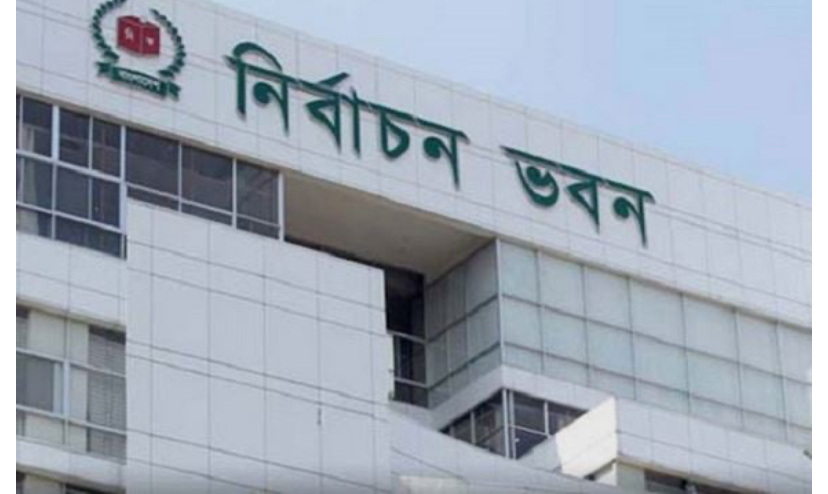Saif
Senior Member
- Messages
- 14,830
- Reaction score
- 7,674
- Origin

- Residence

- Axis Group

- Copy to clipboard
- Thread starter
- #181

Govt on right track over elections, says Fakhrul
BNP Secretary General Mirza Fakhrul Islam Alamgir on Wednesday said the interim government is on the right track over the national election. “We had detailed talks on accelerating the election process. The Chief Adviser reiterated his commitment to holding the national election between...
Govt on right track over elections, says Fakhrul
UNBDhaka
Published: 23 Jul 2025, 21: 33

BNP Secretary General Mirza Fakhrul Islam Alamgir on Wednesday said the interim government is on the right track over the national election.
“We had detailed talks on accelerating the election process. The Chief Adviser reiterated his commitment to holding the national election between mid-February and March. We believe necessary steps should be taken accordingly and he assured us they would be,” he said.
Fakhrul was talking to reporters at the BNP Chairperson’s Gulshan office following a meeting with ‘Bangladesh Nationalist Ethnic Minority Party’.
Responding to a question from reporters over Tuesday night's meeting with the Chief Adviser, he said, “The Chief Adviser suddenly called us. He does it from time to time, especially when a crisis arises in government. We responded because we are committed to supporting this government and will do whatever is necessary to restore democracy.”
He said they believed such interactions should be held more frequently.
Referring to the recent jet crash in Uttara, the BNP leader said, “Many young lives were lost in the accident. I personally visited the site. We expressed our condolences. In the aftermath, two advisers were confined at Milestone School.”
“Again, due to complications surrounding the exams, students entered the Secretariat, and everyone saw that it created an administrative crisis. A few days earlier, fascist elements created chaos in Gopalganj. It felt like a sign of their resurgence,” he added.
He said the Chief Adviser told them that political parties had resisted the fascist forces and invited them for discussions.
“It's natural that this government will have flaws. But rather than focusing on the weaknesses, we should appreciate their intent. I don't see any lack of sincerity in their approach to the election,” Fakhrul said responding to another question.
When asked about the National Consensus Commission’s proposal that the head of government and the party chief should not be the same person, Fakhrul said, “That is their proposal. Political parties are expressing their opinions both in favor and against. All voices must be heard—that’s the essence of democracy. Let all flowers bloom.”
Asked whether the government showed any negligence in handling the situation over Uttara aircraft crash, he said, “There was no negligence, but there was a lack of experience. They have never run a state before. Unlike us, they lack the experience of governance.”
“One more issue is ego. They don’t consult us on anything. They don't take advice from us—perhaps out of ego,” he added.
In response to whether recent unrest is aimed at disrupting the election, Fakhrul said, “Some chaos is indeed happening. It’s clear that fascist forces are trying to stir up trouble.”
UNBDhaka
Published: 23 Jul 2025, 21: 33
BNP Secretary General Mirza Fakhrul Islam Alamgir on Wednesday said the interim government is on the right track over the national election.
“We had detailed talks on accelerating the election process. The Chief Adviser reiterated his commitment to holding the national election between mid-February and March. We believe necessary steps should be taken accordingly and he assured us they would be,” he said.
Fakhrul was talking to reporters at the BNP Chairperson’s Gulshan office following a meeting with ‘Bangladesh Nationalist Ethnic Minority Party’.
Responding to a question from reporters over Tuesday night's meeting with the Chief Adviser, he said, “The Chief Adviser suddenly called us. He does it from time to time, especially when a crisis arises in government. We responded because we are committed to supporting this government and will do whatever is necessary to restore democracy.”
He said they believed such interactions should be held more frequently.
Referring to the recent jet crash in Uttara, the BNP leader said, “Many young lives were lost in the accident. I personally visited the site. We expressed our condolences. In the aftermath, two advisers were confined at Milestone School.”
“Again, due to complications surrounding the exams, students entered the Secretariat, and everyone saw that it created an administrative crisis. A few days earlier, fascist elements created chaos in Gopalganj. It felt like a sign of their resurgence,” he added.
He said the Chief Adviser told them that political parties had resisted the fascist forces and invited them for discussions.
“It's natural that this government will have flaws. But rather than focusing on the weaknesses, we should appreciate their intent. I don't see any lack of sincerity in their approach to the election,” Fakhrul said responding to another question.
When asked about the National Consensus Commission’s proposal that the head of government and the party chief should not be the same person, Fakhrul said, “That is their proposal. Political parties are expressing their opinions both in favor and against. All voices must be heard—that’s the essence of democracy. Let all flowers bloom.”
Asked whether the government showed any negligence in handling the situation over Uttara aircraft crash, he said, “There was no negligence, but there was a lack of experience. They have never run a state before. Unlike us, they lack the experience of governance.”
“One more issue is ego. They don’t consult us on anything. They don't take advice from us—perhaps out of ego,” he added.
In response to whether recent unrest is aimed at disrupting the election, Fakhrul said, “Some chaos is indeed happening. It’s clear that fascist forces are trying to stir up trouble.”







